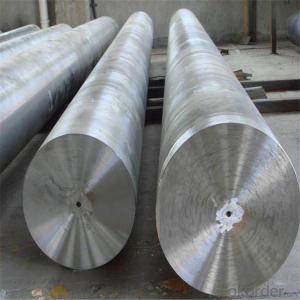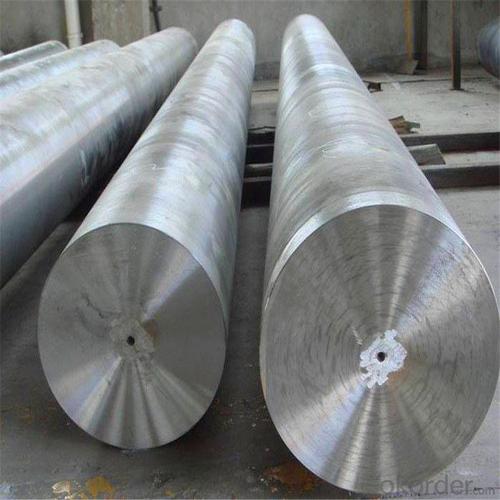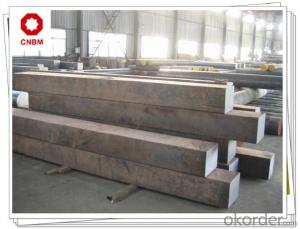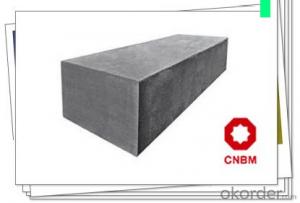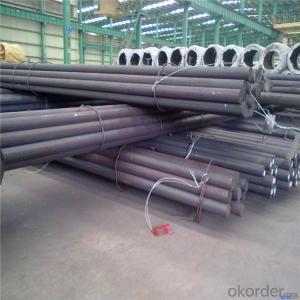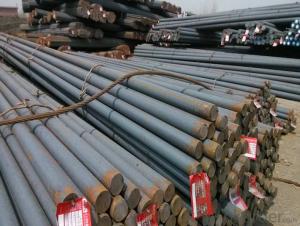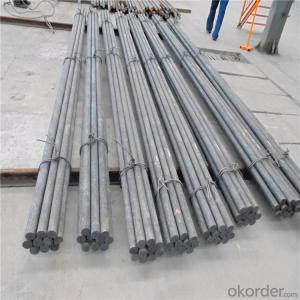Forged S20C Square Steel Bar Carbon Steel
- Loading Port:
- Tianjin
- Payment Terms:
- TT OR LC
- Min Order Qty:
- 100 m.t.
- Supply Capability:
- 500000 m.t./month
OKorder Service Pledge
OKorder Financial Service
You Might Also Like
Specification
Forged S20C Square Steel Bar Carbon Steel
Product Description of Forged S20C Square Steel Bar Carbon Steel
1. Steel grade: SAE1020, 20#, C22, S20C
2. Length: 6M-12M
3. Diameter: 16mm-300mm
4. Product range: round bar, flat bar, square bar
5. Technique: Hot rolled, forged, cold drawn
Specification of MS Mild Steel SAE1020 Hot Rolled Round Bar
Material | S20C | Round bar | Dia(mm) | 16-300mm |
Process | EAF + LF + VD + Forged + Heat Treatment (optional) | Length (mm) | Max 12m | |
Heat treatment | Normalized / Annealed / Quenched / tempered | Flat bar | Thickness(mm) | 8-500mm |
Delivery condition | Hot forged +Rough machined (black surface after Q/T)+ Turned (optional) | Width(mm) | 70-200mm | |
Test | Ultrasonic test according to SEP 1921-84 D/d | Length (mm) | Max 12m |
Chemical Composition of Forged S20C Square Steel Bar Carbon Steel
C | Si | Mn | Cr | Ni | Cu |
0.17~0.23 | 0.17~0.37 | 0.35~0.65 | ≤0.25 | ≤0.30 | ≤0.25 |
Photo Show of Forged S20C Square Steel Bar Carbon Steel
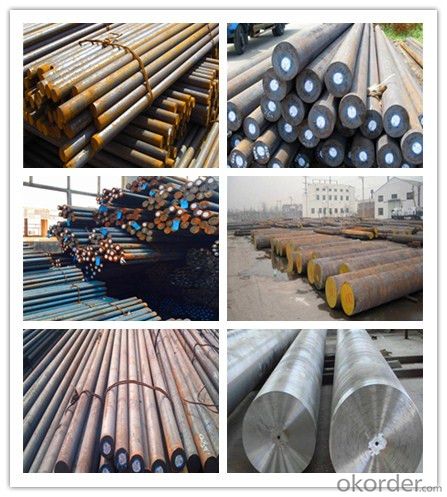
Packing and Delivery:
Packing in bundle package, or as customer's requirements.
Delivery Detail: 45 days after receiving the deposit.
Usage and Applications of Forged S20C Square Steel Bar Carbon Steel
1. Steel round bar is used in a large number of architectural and engineering structures. Or it can be used in construction of plants for the production of steel house frames, high-voltage transmission towers, bridges, vehicles, boilers, containers, ships, etc.
2. And we can use this kind of product on the performance of the mechanical parts if the demand is not very high.
3. Some special material steel round bar can be used for main shaft of steamer, hummer shank, with big section and supper force.
Company Information
CNBM International Corporation is the most important trading platform of CNBM group.
Whith its advantages, CNBM International are mainly concentrate on Cement, Glass, Iron and Steel, Ceramics industries and devotes herself for supplying high qulity series of refractories as well as technical consultancies and logistics solutions.


F A Q
1, Your advantages?
professional products inquiry, products knowledge train (for agents), smooth goods delivery, excellent customer solution proposale
2, Test & Certificate?
SGS test is available, customer inspection before shipping is welcome, third party inspection is no problem
3, Factory or Trading Company?
CNBM is a trading company but we have so many protocol factories and CNBM works as a trading department of these factories. Also CNBM is the holding company of many factories.
4, Payment Terms?
30% TT as deposit and 70% before delivery.
Irrevocable L/C at sight.
5, Trading Terms?
EXW, FOB, CIF, FFR, CNF
6, After-sale Service?
CNBM provides the services and support you need for every step of our cooperation. We're the business partner you can trust.
For any problem, please kindly contact us at any your convenient time.
We'll reply you in our first priority within 24 hours.
- Q: What are the different types of heat treatments used for steel round bars?
- Steel round bars can undergo various heat treatments to enhance their physical and mechanical properties for specific uses. 1. Annealing: To improve ductility and ease of workability, the steel is heated to high temperatures and gradually cooled, typically in a furnace. This relieves internal stresses and reduces the likelihood of cracking. 2. Normalizing: Similar to annealing, normalizing involves heating the steel to high temperatures and allowing it to cool in still air. This process refines the grain structure, leading to improved strength and toughness. 3. Quenching and tempering: This treatment involves rapidly cooling the steel after heating it to high temperatures, using liquids like oil or water. Quenching hardens the steel, increasing its strength and resistance to wear and deformation. However, this process can render the steel brittle, so tempering follows, which entails reheating the steel to lower temperatures and gradually cooling it. Tempering reduces brittleness while maintaining strength. 4. Case hardening: This treatment creates a hardened outer layer on the steel's surface while preserving a softer, more ductile core. By heating the steel with a carbon-rich material like charcoal or gas, carbon diffuses into the surface, forming a wear-resistant layer. The core remains tough and able to withstand shocks. 5. Stress relieving: This treatment alleviates internal stresses resulting from manufacturing processes like machining or welding. The steel is heated below its critical point and slowly cooled, effectively reducing residual stresses and enhancing dimensional stability. These represent only a selection of the common heat treatments employed for steel round bars. The choice of treatment depends on the desired properties and intended applications of the steel.
- Q: Is the shear wall concealed column stirrup steel or round steel?
- Round bar is the finished steel hot rolling and cooling, by ordinary low carbon steel and alloy steel under the condition of high temperature pressing, mainly used for reinforcement of reinforced concrete and prestressed concrete structure, is one of the varieties of steel used in civil engineering in the largest amount.
- Q: Are steel round bars suitable for the production of crankshafts?
- Yes, steel round bars are suitable for the production of crankshafts. Steel round bars offer excellent strength, durability, and machinability, making them ideal for withstanding the high stress and rotational forces experienced by crankshafts in an engine. Additionally, steel's ability to be heat-treated and hardened further enhances its suitability for crankshaft production.
- Q: Can steel round bars be painted?
- Steel round bars can indeed be painted in order to protect them from corrosion and improve their appearance. However, prior to painting, it is crucial to properly prepare the surface of the steel round bars by thoroughly cleaning, degreasing, and eliminating any rust or mill scale. This can be accomplished through various methods such as sandblasting, wire brushing, or chemical cleaning. Once the surface is adequately prepared, it is necessary to apply a primer specifically formulated for steel to enhance the adhesion of the paint. Subsequently, the desired paint can be applied to the steel round bars using brushes, rollers, or spray equipment. It is essential to select a paint that is suitable for outdoor use and offers ample protection against harsh weather conditions. To ensure the long-lasting durability of the painted steel round bars, regular maintenance and periodic repainting may be necessary.
- Q: What are the different types of steel round bar surface treatments used in the aerospace industry?
- In the aerospace industry, there are several types of steel round bar surface treatments that are commonly used to enhance the performance and durability of the materials. These treatments are specifically designed to meet the stringent requirements and standards set by the industry. Some of the different types of steel round bar surface treatments used in the aerospace industry include: 1. Passivation: This treatment involves the removal of iron particles and other contaminants from the surface of the steel round bar. It helps to prevent corrosion and improves the overall corrosion resistance properties of the material. 2. Shot Peening: Shot peening is a process that involves bombarding the surface of the steel round bar with small metallic shots. This treatment induces compressive stress on the surface, which enhances the material's fatigue strength and resistance to stress corrosion cracking. 3. Electroplating: Electroplating is a common surface treatment used in the aerospace industry. It involves the deposition of a layer of metallic coating onto the steel round bar through an electrochemical process. This treatment enhances the material's corrosion resistance, wear resistance, and aesthetic appearance. 4. Anodizing: Anodizing is an electrolytic passivation process that is commonly used on aluminum alloys. However, it can also be used on steel round bars. This treatment forms a thick, durable, and corrosion-resistant layer of oxide on the surface, which improves the material's resistance to wear, corrosion, and scratching. 5. Nitriding: Nitriding is a surface hardening treatment that involves the diffusion of nitrogen into the surface of the steel round bar. This treatment improves the material's surface hardness, wear resistance, and fatigue strength. 6. Chemical Conversion Coating: Chemical conversion coating is a treatment that involves the formation of a thin, protective layer on the surface of the steel round bar. This coating enhances the material's corrosion resistance and provides a good base for subsequent paint or coating applications. These are just a few examples of the different types of steel round bar surface treatments used in the aerospace industry. Each treatment offers unique benefits and is selected based on the specific requirements of the application, such as corrosion resistance, wear resistance, fatigue strength, and aesthetic appearance.
- Q: What are the advantages of using nickel-tin alloy steel round bars?
- Nickel-tin alloy steel round bars offer numerous benefits. Firstly, their corrosion resistance is excellent, making them perfect for use in harsh environments and with corrosive substances. The addition of nickel and tin enhances their durability and longevity, enabling them to withstand prolonged exposure to moisture, chemicals, and other corrosive elements. Secondly, these round bars provide superior strength and toughness. The combination of nickel and tin in their alloy composition improves their mechanical properties, making them highly resistant to deformation, bending, and breaking. As a result, they are suitable for demanding applications in industries such as construction, aerospace, and automotive. Additionally, nickel-tin alloy steel round bars exhibit exceptional heat resistance. They can endure high temperatures without significant loss of strength or deformation. This makes them ideal for applications involving exposure to elevated temperatures, such as in furnaces, boilers, and heat exchangers. Moreover, nickel-tin alloy steel is renowned for its excellent electrical conductivity. This property makes the round bars suitable for applications requiring efficient electrical transmission, such as in electrical wiring, power generation, and electrical equipment manufacturing. Lastly, machining and fabricating nickel-tin alloy steel round bars is relatively easy. They can be shaped, cut, and welded with ease, allowing for versatility in various manufacturing processes. This ease of machining and fabrication ensures efficient production and reduces overall manufacturing costs. In conclusion, the advantages of using nickel-tin alloy steel round bars include outstanding corrosion resistance, superior strength and toughness, high heat resistance, excellent electrical conductivity, and ease of machining and fabrication. These properties make nickel-tin alloy steel round bars the preferred choice for a wide range of applications in diverse industries.
- Q: What are the advantages of using nickel-tungsten alloy steel round bars?
- There are several advantages to using nickel-tungsten alloy steel round bars. Firstly, the inclusion of nickel enhances the corrosion resistance of the bars, making them suitable for use in harsh environments. Additionally, the addition of tungsten improves the strength and hardness of the bars, making them highly durable and able to withstand heavy loads and high temperatures. Furthermore, the alloy steel composition provides excellent wear resistance, making these bars ideal for applications that require prolonged use or frequent contact with abrasive materials. Overall, nickel-tungsten alloy steel round bars offer a combination of corrosion resistance, strength, and durability, making them a reliable choice for various industrial applications.
- Q: Can steel round bars be used in the manufacturing of power transmission components?
- Certainly! Steel round bars have the potential to be utilized in the production of power transmission components. Due to their remarkable strength, durability, and versatility, steel round bars are commonly employed in the manufacturing process of various mechanical and structural components. Specifically, in power transmission systems, components like shafts, gears, couplings, and spindles are frequently crafted using steel round bars. The robustness and tenacity of steel make it a suitable material for enduring high levels of stress and torque, which are typical in power transmission applications. Furthermore, steel round bars can be skillfully machined and forged into diverse shapes and sizes, allowing for precise engineering and customization of power transmission components. In summary, steel round bars provide the essential mechanical properties necessary for efficient and dependable power transmission across a range of industries.
- Q: How do you calculate the weight of a steel round bar?
- To calculate the weight of a steel round bar, you can use the formula: Weight = (Diameter^2 / 4) * Length * Density In this formula, the Diameter refers to the diameter of the round bar, Length represents the length of the bar, and Density is the density of the steel material. First, you need to measure the diameter of the steel round bar accurately. Then, square the diameter by multiplying it by itself. Divide the result by 4. This will give you the cross-sectional area of the round bar. Next, multiply the cross-sectional area by the length of the bar. Finally, multiply this value by the density of the steel material. The density of steel is typically around 7850 kg/m^3. The result of this calculation will give you the weight of the steel round bar in grams or kilograms, depending on the units used for the length and density.
- Q: 4145H round steel is equivalent to the domestic brand?
- Round steel is a solid strip of steel whose cross section is round. Its specifications are expressed in diameter, in units of millimeters (mm), such as "50mm", which means a diameter of 50 millimeters of round steel. Round bar is divided into three parts: hot rolling, forging and cold drawing. Standard Specification for hot rolled round steel is 5.5-250 mm. Of which: 5.5-25 mm small round bars are mostly supplied by straight strips. They are used as reinforcing bars, bolts and various mechanical parts; round steel larger than 25 millimeters, mainly used for making machines.
Send your message to us
Forged S20C Square Steel Bar Carbon Steel
- Loading Port:
- Tianjin
- Payment Terms:
- TT OR LC
- Min Order Qty:
- 100 m.t.
- Supply Capability:
- 500000 m.t./month
OKorder Service Pledge
OKorder Financial Service
Similar products
Hot products
Hot Searches
Related keywords
